02 – 04 – 20
Embassador: Moses Pelham
We couldn’t have wished for a better first guest for our new ‘Embassadors’-series than German rapper and producer Moses Pelham. Known for putting a rougher style of lyricism on the map of his home country and close to three decades in the game, Moses looks back on an eventful and not always peaceful past. Yet, he is the poster child of ethical veganism in German rap music. We jumped at the chance to discuss assumed contradictions which, it turns out, are not too contradictory after all.
WORDS by ERIC MIRBACH
PHOTOS by ANNA VATHEUER
We’re over the moon to introduce our new, ongoing ‘Embassadors’-series, for which we meet inspiring, like minded people from all walks of life: Artists and creatives, do-gooders and forward-thinkers, movers and shakers. Some well-known, others outside the spotlight, but inspiring personalities on a mission, always. So basically, what we’re doing is use what they call ‘content marketing’ as an excuse to meet kindred spirits we find inspiring – pretty much the kind of people we mustered to make jackets for.
The first Embassador in this ongoing series is no other than Moses Pelham. The rapper and producer hailing from Frankfurt, Germany has been playing an important role in the German rap scene for nearly 30 years.

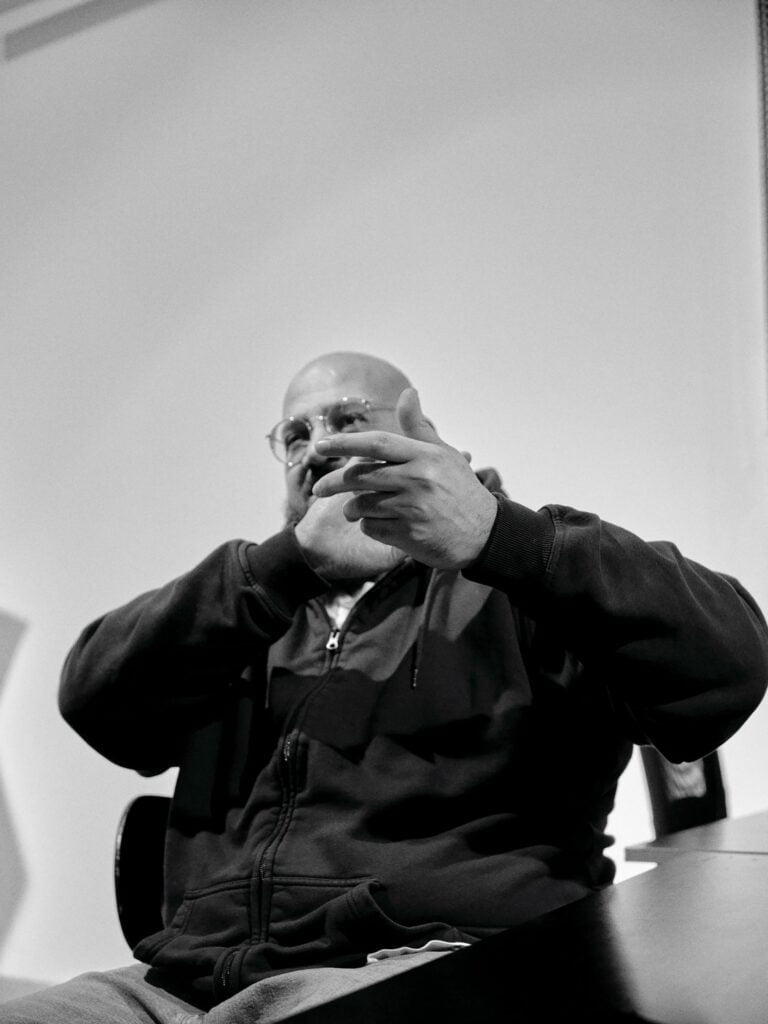
We meet Moses in a photo studio in Berlin. He’s in the city for a couple days to promote his new record “Emuna” and we managed to squeeze in two hours to meet, take photos, talk. We’ve been following Moses career since the early 90s, and grew up with the music released on his label 3P, both his own as well as music by artists he produced. But let’s begin at… well, the beginning.
Germany, 1994. The first album by infamous rap duo Rödelheim Hartreim Projekt (RHP in short) had just come out and it was challenging the status quo of German rap music at the time. Hip hop culture as a whole and rap music in particular had made the jump across the Atlantic just a couple years prior but was already breaking into mainstream consciousness.
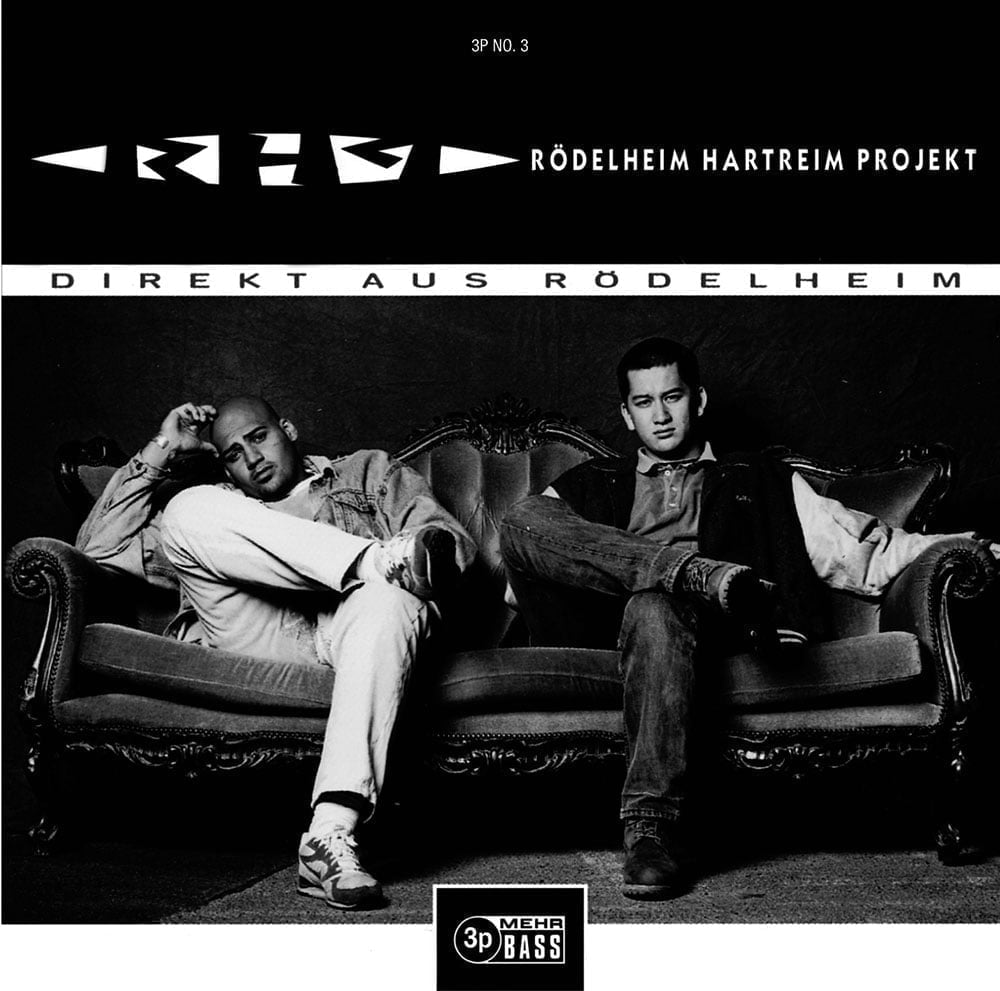
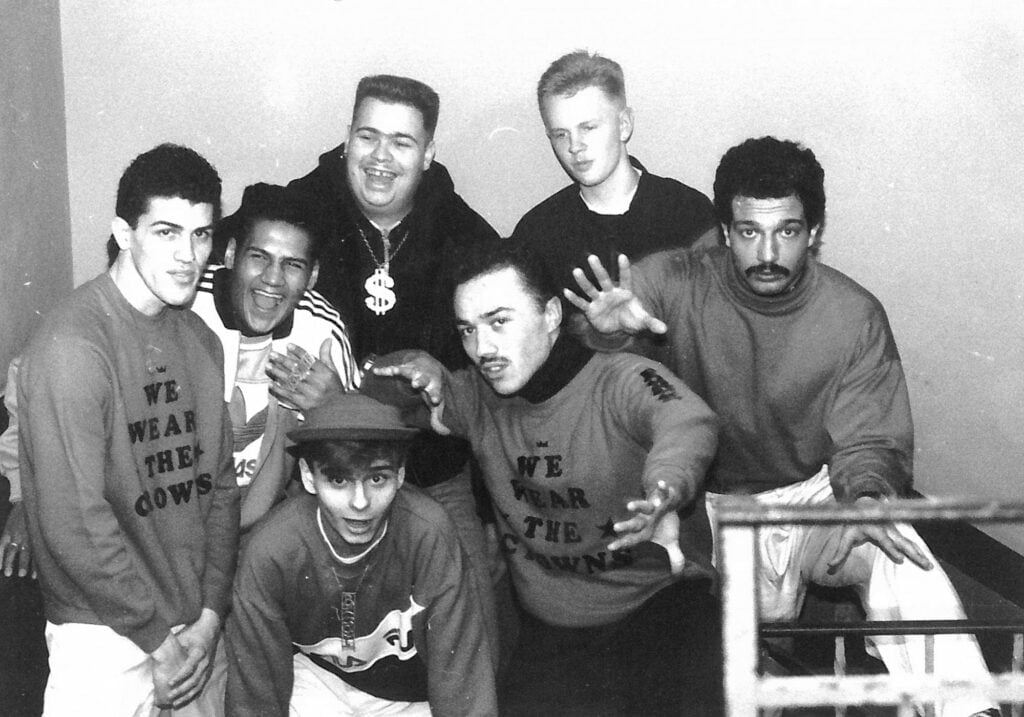
But up until then, the German version of that new US-sound had been rather well-behaved. Frankfurt, smack in the middle of Germany, was not having it. With a rougher sound and edgier lyrics, Frankfurt city rappers were out to change the perception of hip hop music in Germany and RHP did it by openly disrespecting their peers on wax.
“I just looked at it as competition,” Moses explains. “It had that battle component which is just a part of rap music. For me, it’s just like… look, I’m better than that dude and I’ll show you.”
“Look, I’m better than that dude and I’ll show you.”
So was Frankfurt’s scene responsible for bringing a rougher sound to German rap music? Moses says: “Definitely. Granted, we didn’t rap about selling drugs, simply because we didn’t engage in that. But yes, we definitely were different than everything else out there. I sometimes think there must be something in the water here. When it comes to that certain melancholy and heaviness in the music, Frankfurt is very special.”
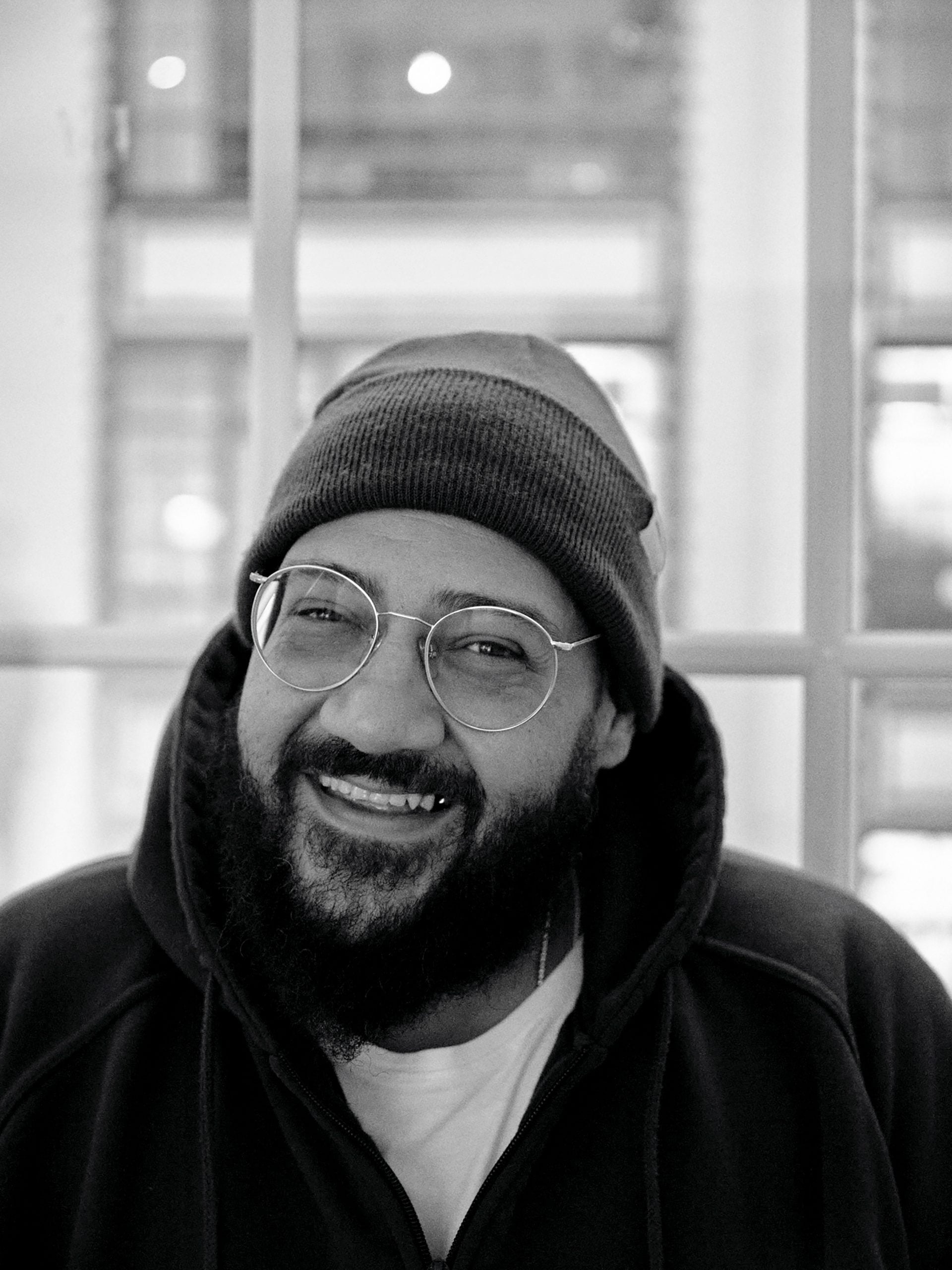
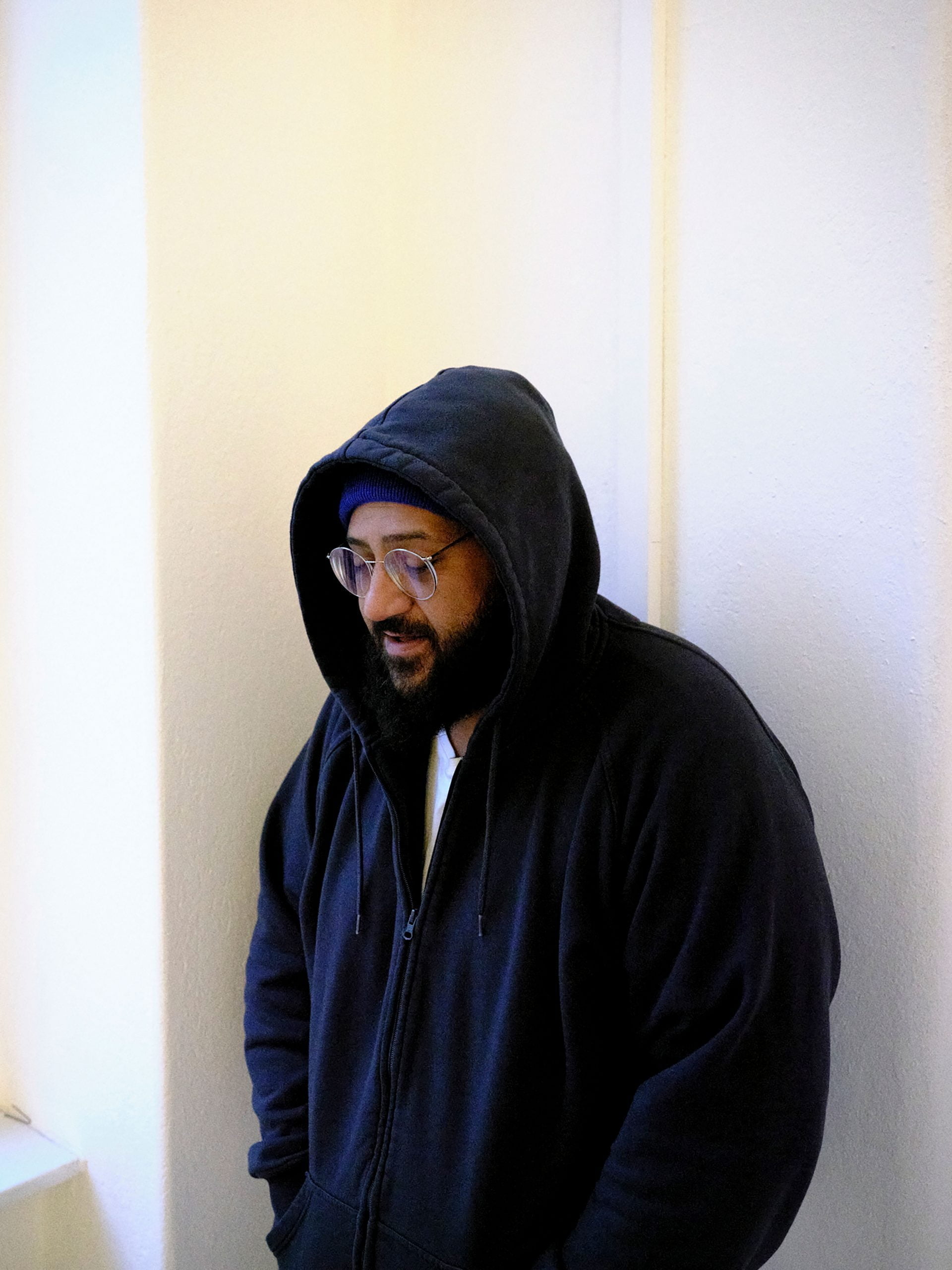
Fast forward to 2020. Rap music has arguably become the biggest force in the music industry today. It’s fair to say that rap music, after techno, was the last big wave of innovation in music and made a permanent impression on fashion, dance, other music genres, everyday language, art and pop culture at large.
But the genre is problematic, too. Sure, it’s not too much of a surprise that a youth cultural movement which developed as an alternative to the ongoing gang violence in the South Bronx of the late 1970s came with a street slang that wasn’t following the rules of political correctness. After all, the concept of going against other rappers and crews in a “battle”, one-upping one another, was designed to replace actual, physical turf wars. So while it’s predestined to be misunderstood and misinterpreted by default, there are aspects that are to be seen critical for sure.
Rap music is under constant surveillance. A seemingly imperative machismo, rhymed threats of violence and strong, often sexually charged language are driving factors of the way lyrics are perceived.
“If you’re treating me unfairly, I’ll react accordingly. Same goes for treating others unfairly.”
Where does Moses fit into this? The right answer would be: Somewhere in between, doing his part to alter that perception without betraying the fundamentals of his genre. The man who has played a leading role in establishing an unpolished, very direct language in the genre, has lyrically developed over the years, from a more confrontational attitude towards an emotional, even fragile poetic language. “I started rapping when I was 16 years old,” Moses explains. “I think I didn’t see the artistic value of it in the beginning, I just wanted to express myself and it was about getting attention and thumping the table. But that has changed over time.”
Today, Moses is closing in on half a decade on this planet (“I’m deep in the second half,” he laughs). Then, after quoting Goethe to us (another Frankfurt writer), he describes how much a poem by Al-Ma’arri, a blind Arabian poet, has touched him. In “I no longer steal from Nature”, Al-Ma’arri describes his vegan way of life (only that there wasn’t a word for it back then).
“For injustice is the worst of crimes,” Moses cites the writer, born in the year 973 near Aleppo. “That hit home for me. I was so touched and it was all so obvious. Injustice is one of the main drivers in my work,” Moses explains. “When you always think you’re being treated unfairly, you’re either very into the idea of justice or you’re taking yourself too seriously. In my case, it’s probably both,” he laughs and goes on: “But at the end of the day, I’m not okay with things that are unfair. That starts in my music and transcends into other aspects of my life. If you’re treating me unfairly, I’ll react accordingly. Same goes for treating others unfairly. I’m not having it.”

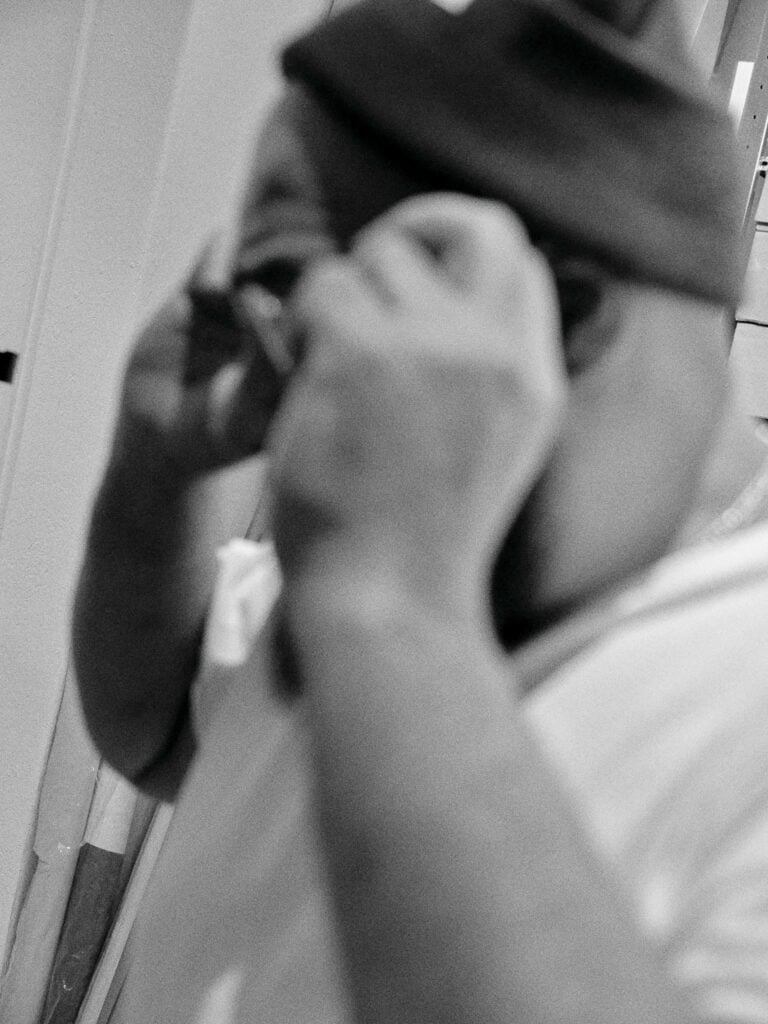
It becomes clearer why Moses Pelham has become the posterboy for veganism in German rap music, which must feel like an oxymoron to most if you look at the way the genre is perceived in the mainstream.
“I understand that it might feel like a contradiction, but I don’t think that’s actually true. I know it’s too complicated for a punchy billboard headline, but that’s just how I am. I could make things easier for myself, but I choose not to. The fact that factory farming also contributes to climate change in such a big way, that it pollutes our oceans and overacidifies our soil, that is just grist to my mill.”
“I’ve known it’s wrong to eat animals since I was a kid and I’ve been struggling with that knowledge and my contradicting behavior for years and years. But once I read that poem, I knew it was time to make a change for the better. That doesn’t make me perfect, far from it. But at least now I know that I cause less harm.”
“I’ve known it’s wrong to eat animals since I was a kid and I’ve been struggling with my contradicting behavior for years.”
People are complex, and so are their stories. Same goes for the undertaking we call ‘Embassy of Bricks and Logs’ – making products in a world of abundance but trying to make a difference nevertheless, is not always an easy path. With Moses Pelham, we feel like we found the perfect first guest for our new ‘Embassador”-series, for exactly that reason: He’s trying to navigate the (often assumed) contradictions of life while staying true to his craft.
Thank you for the great talk, Moses.
For more on Moses and his work:

ABOUT THE AUTHOR
As Head of Brand for Embassy of Bricks and Logs, Eric Mirbach is in charge of all marketing efforts…
which includes all things ’sustainability’ here at the Embassy HQ.



